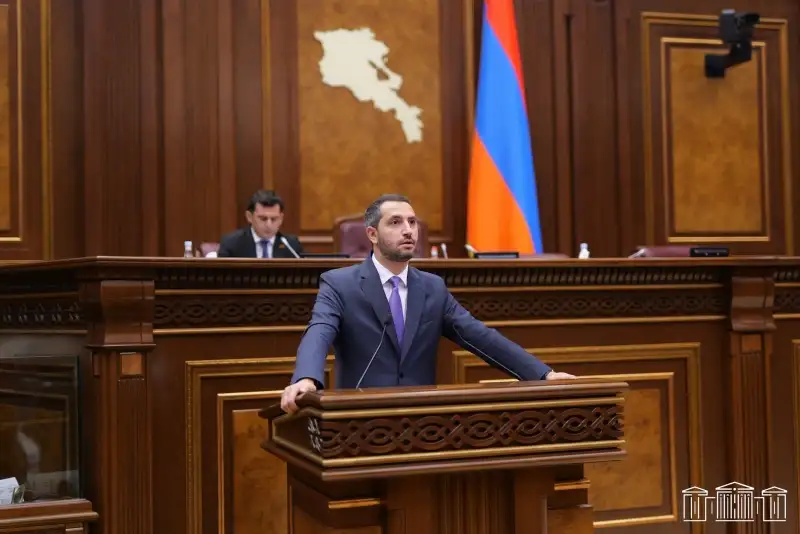Radar Armenia's interlocutor is Shahan Gantaharyan, an international scholar.
- The Russian President's spokesman, Dmitry Peskov, stated that Russia will use nuclear weapons only if something threatens its existence. Is the Russian side presenting a request to the West, or is it just a duty statement?
- It is not the first time that Moscow has hinted at nuclear weapons. This is a practice used in the rhetoric of interstate relations to remind us of the existence of red lines. At the same time, it is observed that he uses it when the pressure becomes more muscular. There are skirmishes in the declarative dimension. Washington also announced that surprises will await Russia in the war.
- The Minister of Defense of Azerbaijan went to Turkey, and the Minister of Defense of Armenia went to Iran. What do these visits indicate? What developments can we expect in our region?
- They go to the leading players in two directions. Both Ankara and Tehran have already taken on the role of unofficial mediators, which means that the USA, EU, Turkey, and Tehran have entered Moscow's domain and are taking shares. Multipolar processes take place here.
- Direct negotiations between Azerbaijan and Armenia are the basis of peace, progress, and development. Iranian Defense Minister Mohammad Reza Ashtiani made such a statement. Do direct negotiations between Armenia and Azerbaijan have a chance of succeeding?
When Tehran talks about direct negotiations, it includes not only the idea of ousting the West but also Russia as a unique mediator. These days, Moscow refers on several occasions to the November tripartite and proposes implementing the agreement reached on establishing the Syunik connection under Russian control. This is exactly against Iran's interests. More globally, Iran wants to bring Baku under its influence, where there is competition for influence between Moscow and Turkey.
- The Russian Prime Minister's visit to Baku once again highlighted the warm partnership relations of the Russian-Azerbaijani tandem. What is the purpose of the Prime Minister's visit to Baku before the Russian elections?
- Yes, Russian-Azerbaijani cooperation is deepening. Baku is a vital energy window for blockaded Russia. This is done with Ankara's permission. In parallel, of course, there is a silent competition between Moscow and Ankara in many directions, and in this case, the task of influencing Baku. The visit of the Prime Minister of the Russian Federation will mainly serve the purpose of keeping the energy window open.
- Will new rules of the game be introduced into political life after the presidential elections in the USA? After Trump becomes President, what risks may arise in regulating Armenian-Azerbaijani relations?
The changes in internal American policy will be more visible than, by and large, in foreign policy. It is assumed that tense Russian-American relations will soften to a certain extent, and the aid given to Ukraine will decrease. However, there will not be significant, drastic changes in these directions. However, it cannot be ruled out that negotiations between Ukraine and Russia will begin. International political science has begun to hint at the end of the war and the beginning of negotiations.
- Do you think it is likely that in the event of Trump becoming President, Washington will leave the game and give up the mediator's "title"?
- The problem is that more than the Washington-Tehran agreement is needed to start new processes in the South Caucasus. The Russian-Turkish partnership is still working here. The situation will change when Washington instructs Ankara to end that cooperation. The moment is still not ripe for an American red light. If the general tendency formula is that Iran is unblocked and Russia is isolated, then in that case, I don't think there will be drastic changes. If the positions towards Iran are tightened again, then the policy of deploying new positions in the regions close to Iran will gain momentum again. However, the formula of an unblocked Iran against an isolated Russia is currently working.
Hayk Magoyan


















